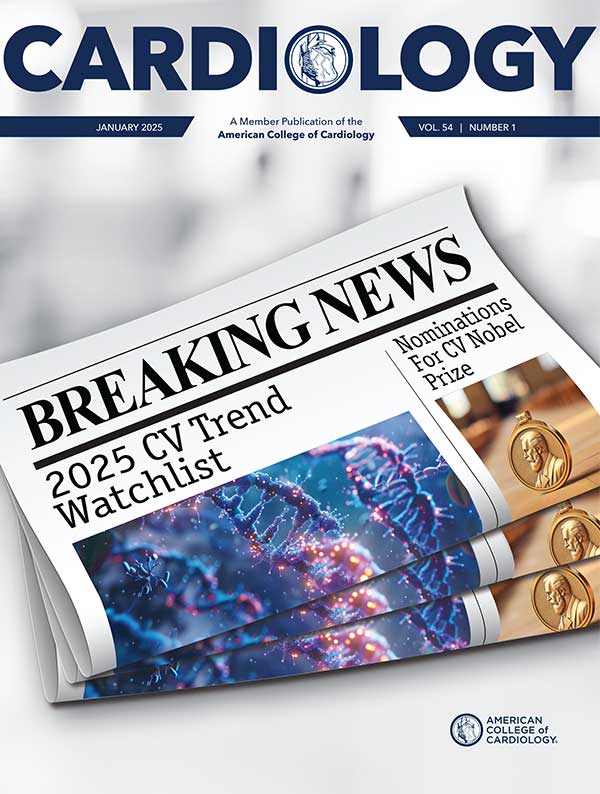Feature | A Nobel For Advancing CV Medicine?

Imagine this: the selection committee for the Nobel Prize in Physiology or Medicine is set to honor an advancement in cardiology in 2025. The question is not whether cardiology deserves it – but rather who in this diverse and rapidly evolving field would be the most deserving recipient?
From pioneering new therapies in heart failure (HF) to groundbreaking research on genetic risk factors, cardiovascular medicine has transformed patient outcomes and pushed the boundaries of what is possible.
From conference halls to catheterization labs, Cardiology asked several prominent cardiologists to nominate candidates from within the world of cardiology for this hypothetical honor.
Eugene Braunwald, MD, MACC
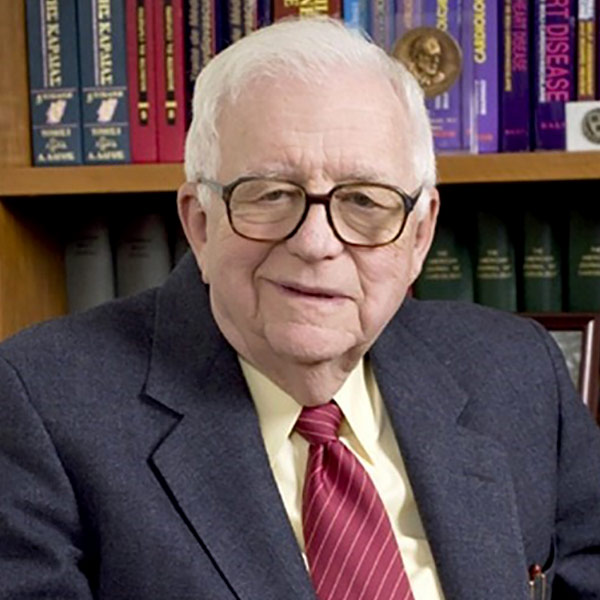
Often referred to as the father of modern cardiology, Braunwald's name emerged repeatedly for this honor. His systematic approach to understanding cardiovascular disease – as a clinician, researcher, mentor, teacher, editor and academic leader/administrator – has created the very framework within which today's innovations flourish.
Among his many achievements, Braunwald founded the Thrombolysis in Myocardial Infarction (TIMI) Study Group in 1984 at Brigham and Women's Hospital. The TIMI Group was revolutionary at the time because it established a new model for large-scale, collaborative clinical trials in cardiovascular medicine.
Braunwald created a collaborative network of researchers across multiple institutions that could conduct comprehensive, rigorous studies in cardiovascular medicine, which was instrumental in transforming cardiology from a descriptive field to a rigorous scientific discipline.
"I think his biggest impact has been the dedication to investing into the evidence to support our practice. From large to small clinical trials, predictive risk scores and onwards, he moved cardiology to the forefront of evidence-based medicine," says Eric A. Secemsky, MD, FACC, Cardiology's Peripheral Matters Section Editor.
"The living Nobel Prize winners in medicine or physiology voted Dr. Braunwald as 'the person who has contributed the most to cardiology in recent years,'" notes Peter Libby, MD, FACC, who has collaborated closely with Braunwald for more than 50 years.
"His contributions span decades and all of cardiology," adds Roxana Mehran, MD, FACC, an interventional cardiologist at Mount Sinai in New York and an ACC Trustee.
Nanette Kass Wenger, MD, MACC
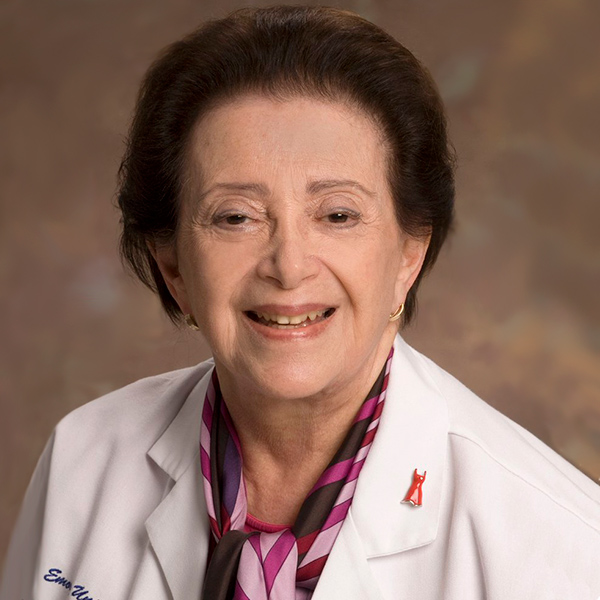
The work of Nanette Kass Wenger, MD, MACC, has fundamentally impacted, literally, half the world's population, according to both ACC President Cathleen Biga, MSN, FACC, and Cardiology's Heart Failure Section Editor, Ersilia M. DeFilippis, MD, FACC.
"Wenger stands as a transformative figure in cardiovascular medicine, fundamentally reshaping our understanding of heart disease in women during a time when medical research was overwhelmingly male-centric," says Biga.
As a cardiologist at Emory University, Wenger challenged the prevailing medical paradigm by demonstrating that heart disease presents differently in women. Her groundbreaking research revealed that heart disease is the leading cause of death among women – a fact that was largely ignored by the medical establishment for decades.
"Dr. Wenger was a pioneer in shifting the focus of the field to encompass heart health for women after encountering many naysayers. In 1992, she convinced the National Heart, Lung and Blood Institute to convene a conference that she co-chaired specifically on "Cardiovascular Health and Disease in Women," notes DeFilippis, who adds that her career focus on women's health and sex differences in HF was influenced by Wenger's leadership.
Says Biga, "Dr. Wenger broke glass ceilings and circumvented glass ceilings in her academic leadership at Emory University. She didn't just conduct research; she fundamentally changed how the medical community thinks about heart disease, pushing for prevention, early detection and gender-specific treatment strategies."
Julio C. Palmaz, MD, FACC
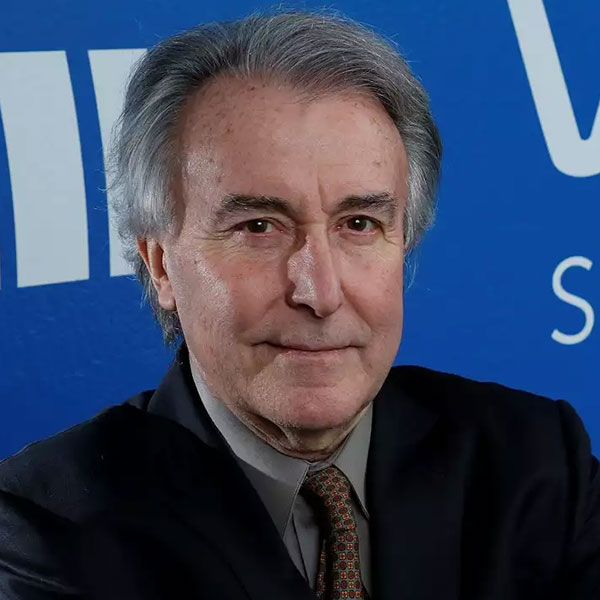
A vascular radiologist, Julio C. Palmaz's, MD, FACC, invention of the coronary stent fundamentally transformed interventional cardiology, according to Biga.
"The Palmaz-Schatz stent, developed with Richard Schatz, became the first coronary stent approved by the U.S. Food and Drug Administration, in 1994, and it literally changed cardiovascular treatment overnight and has saved countless lives," says Biga.
Richard Allen Williams, MD, FACC
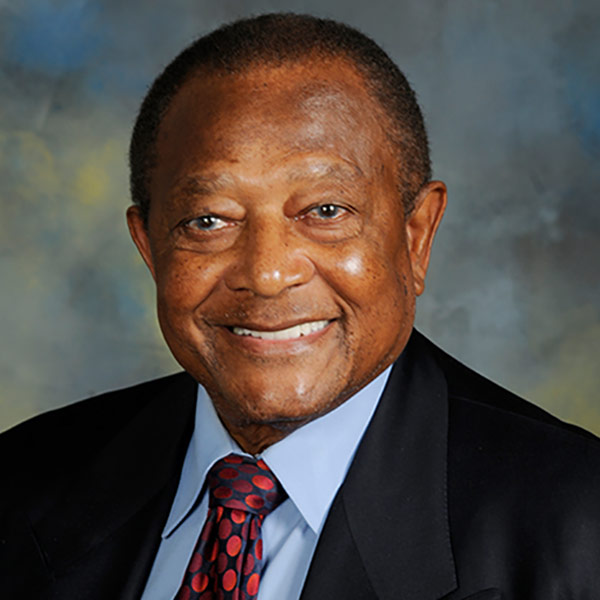
A pioneering cardiologist, Richard Allen Williams, MD, FACC, broke critical racial barriers in medicine while making significant contributions to cardiovascular health in African American communities.
As the first Black cardiologist in California and a founder of the Association of Black Cardiologists (ABC) in 1974, Williams fundamentally challenged the racial segregation in medical practice and medical education.
Williams documented critical disparities in heart disease prevalence, treatment and outcomes among Black patients, bringing attention to systemic inequities that were largely ignored by the medical establishment.
He demonstrated that African Americans experienced higher rates of hypertension, HF and cardiovascular mortality, and argued that these differences were not just genetic but deeply rooted in social determinants of health.
Beyond his clinical work, Williams is considered a modern embodiment of a renaissance man and perhaps the best jazz playing cardiologist in the world, says Biga.
Elizabeth M. McNally, MD, PhD, FACC

A human geneticist and cardiologist at Northwestern University Feinberg School of Medicine, Elizabeth M. McNally's, MD, PhD, FACC, clinical and research interests are in the genetics of cardiovascular and neuromuscular disorders.
"Dr. McNally leads a vibrant team of collaborators performing basic research on the genetic mechanisms responsible for inherited human diseases including heart failure, cardiomyopathy, muscular dystrophy, arrhythmias and aortic aneurysms," says nominator Elfriede Pahl, MD, FACC, who will give the McNamara Keynote at ACC.25.
"Working with individuals and families, her team is defining the genetic mutations that cause these disorders. By establishing models for these disorders, it has become possible to develop and test new therapies, including genetic correction and gene editing which may cure these diseases."
Robert M. Califf, MD, MACC
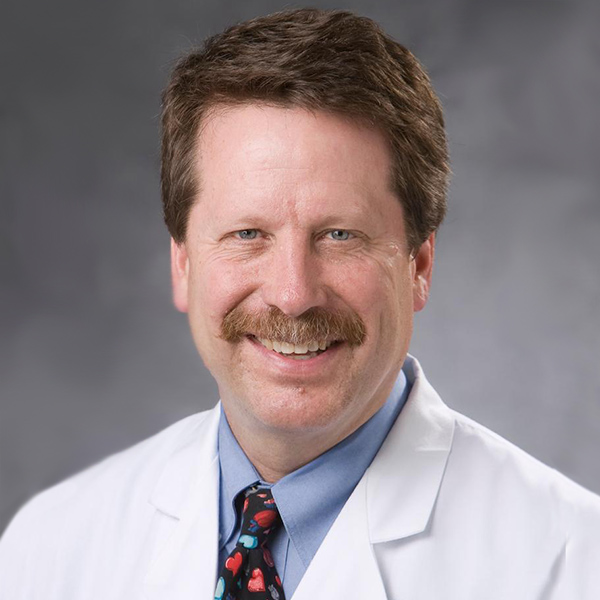
The current Commissioner of the U.S. Food and Drug Administration, Robert M. Califf, MD, MACC, is a legendary figure in cardiology, with a legacy that began long before his two appointments as FDA Commissioner (under the Obama and Biden administrations).
As the founder of the Duke Clinical Research Institute, Califf developed sophisticated methodologies for large-scale clinical trials, creating more rigorous ways of evaluating medical interventions.
"He pioneered approaches to gathering and analyzing complex medical data, establishing standards that are now fundamental to modern medical research," says Mehran. "Califf essentially transformed clinical trials from relatively small, localized studies to comprehensive, multi-institutional investigations that could provide more definitive insights into treatment efficacy."
Martin B. Leon, MD, FACC
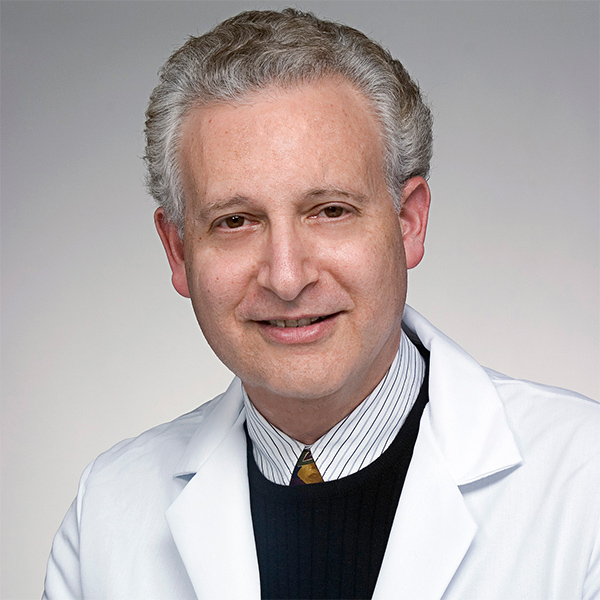
Martin B. Leon, MD, FACC, should be recognized for his pioneering contributions to the development, validation and global dissemination of TAVR, says Harlan M. Krumholz, MD, SM, FACC, editor-in-chief of JACC. This groundbreaking innovation has revolutionized the treatment of severe aortic stenosis, particularly for patients who were previously inoperable or at high surgical risk."
Leon played a pivotal role as an early developer of the technology and the principal investigator of the PARTNER trials. His work established TAVR not only as a viable alternative to open-heart surgery but also as a transformative therapy that is now being expanded to include lower-risk patients.
"The impact of TAVR is staggering. Millions of procedures have been performed worldwide, improving survival and quality of life for patients with a condition that was once a near-certain death sentence, especially for those whose clinical status precluded surgery," says Krumholz.
He also notes Leon's contributions as "a visionary leader" in advancing the field of structural heart interventions, inspiring new techniques and technologies to treat valvular and other structural heart diseases.
Harvey Feigenbaum, MD, FACC
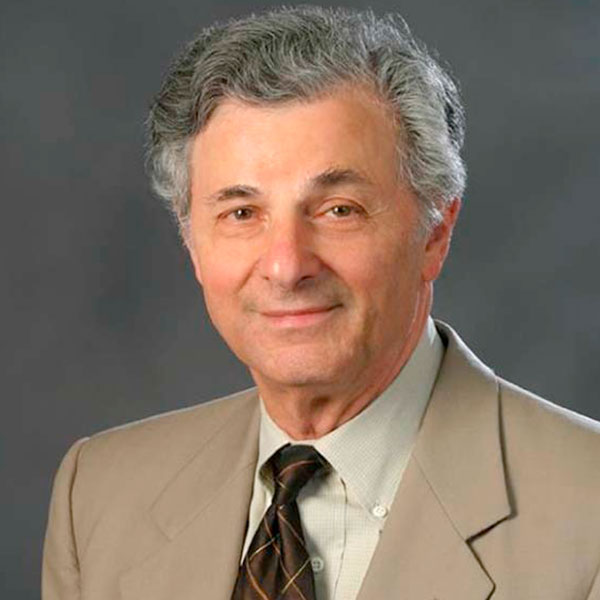
Widely regarded as the "Father of Echocardiography," Harvey Feigenbaum, MD, FACC, founded the American Society of Echocardiography and has trained many early pioneers and the first cardiac sonographers, organizing the first courses in echocardiography, and writing the first and leading textbook with multiple editions and translations.
Echocardiography is the most widely used cardiac imaging technique in the world and the foundation of cardiovascular imaging," says ACC Vice President and President-Elect Christopher M. Kramer, MD, FACC. "Dr. Feigenbaum published the first paper on imaging of pericardial effusions with echo and the rest is history."
Cardiology's Nobel History
In the pantheon of Nobel laureates in Medicine, cardiologists are surprisingly sparse. Since the prize's inception in 1901, only two physicians closely associated with cardiology – André Cournand and Dickinson Richards – have received the iconic medallion, honored for their pioneering work in cardiac catheterization.
That said, the Prize has repeatedly honored groundbreaking cardiovascular research – though remarkably few of these laureates were practicing cardiologists. Take James Black, who won in 1988 for developing beta-blockers. He was a pharmacologist. Or the 1985 prize awarded to physician-researchers Michael Brown and Joseph Goldstein for their work on cholesterol metabolism, specifically the functioning of the LDL receptor – which laid the groundwork for statins. Brown is a geneticist and Goldstein a biochemist. Even Willem Einthoven, who won the Nobel in 1924 "for the discovery of the mechanism of the electrocardiogram" was a physiologist.
Nobel Prize-Related Trivia
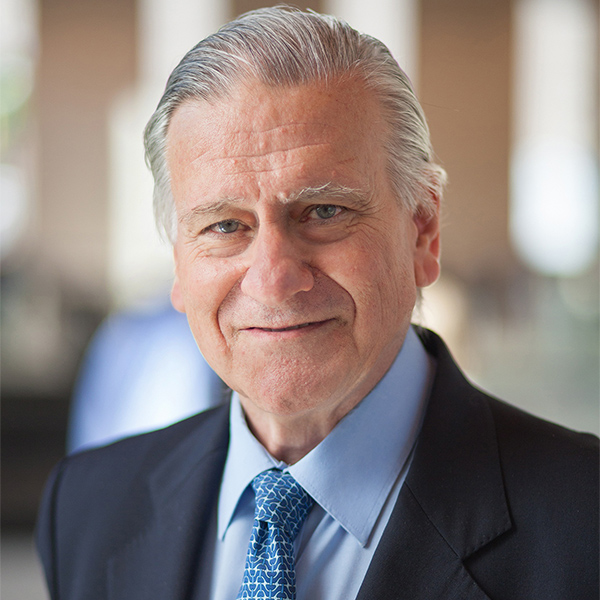
In 2020, Valentin Fuster, MD, PhD, MACC, past editor-in-chief of JACC and chair of the College's Valentin Fuster Cardiovascular Symposium, was honored with the 29th annual Prince Mahidol Award in the field of Medicine for his international leadership in promoting global cardiovascular health and his breakthrough contributions to cardiovascular medicine over the course of his distinguished career. Five of the past award winners have subsequently received the Nobel Prize.
Who's Your Nomination?
This is just a small snapshot of deserving cardiologists who continue to have a transformational impact on the field of cardiology. Share your nomination on social media using @Cardiology and tagging #CardiologyMag.
This article was authored by Debra L. Beck, MSc.
Keywords: Cardiology Magazine, ACC Publications, Nobel Prize

